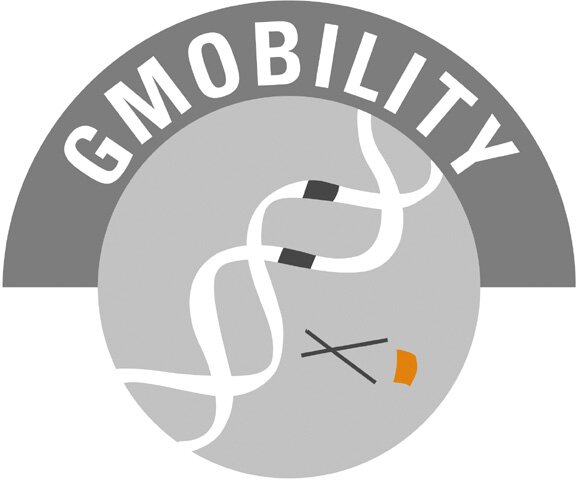
Safety evaluation of horizontal gene transfer from genetically modified organisms to the microflora of the food chain and human gut

|
About GMOBILITY
Safety evaluation of horizontal gene transfer from genetically modified organisms to the microflora of the food chain and human gut |
A Review of EC-supported Research on Safety of GMOs
Objectives The main objective of the project is to quantify the risk of horizontal gene transfer (HGT) from GMO and food derived thereof to the microflora of the food chain and the human gut. Apart from analysis of transfer frequencies, hazards will be identified, exposure data will be collected and the impact will be addressed to quantify the risk of HGT and to be conclusive. Selective conditions are particularly relevant for antibiotic resistance marker genes. Therefore, the relevance of a particular antibiotic as therapeutic agent will be dealt with in the risk evaluation. This project aims also on evaluation of models to study these HGT events.
Scientific background HGT as a biosafety issue has been addressed in several studies mainly focused on the transfer of antibiotic resistance from GM plants to soil- and plant related microorganisms. HGT to bacteria in these environments was only shown by marker rescue experiments via homologous recombination. HGT via transformation of bacteria in the food chain can not be excluded. In some matrices free DNA persists for weeks. In addition, some bacteria develop natural/chemical competence. Also in the gastrointestinal tract, DNA may remain stable for some times particularly in the colon. Approach used and methodology To collect the data on HGT, food, in vivo and in vitro GI-tract model systems will be studied, evaluated and validated for the evaluation HGT from transgenic food products. Since genes can be transferred via different mechanisms depending on the genetic background, different donor/recipient systems will be studied. In addition to the mechanisms additional parameters in the frequency of HGT will be analysed such as survival of bacteria, stability of DNA, development of competence for transformation, possibility for recombination, and selective pressure. The collected data will be evaluated to quantify the risk of HGT based on the genetic background, daily intake of transgenic DNA, formulation of the food product, and the nature of marker genes. Structure of the project Project is structured by the definition of five work packages:
|
||||||||||||||||||||||||||||||||||||||||||||||||||||||||||||||||||||||||||||||||||||||||||||
|
Latest update: 17-12-2002 |
||||||||||||||||||||||||||||||||||||||||||||||||||||||||||||||||||||||||||||||||||||||||||||
About GMOBILITY - Results - Press Releases |
||||||||||||||||||||||||||||||||||||||||||||||||||||||||||||||||||||||||||||||||||||||||||||